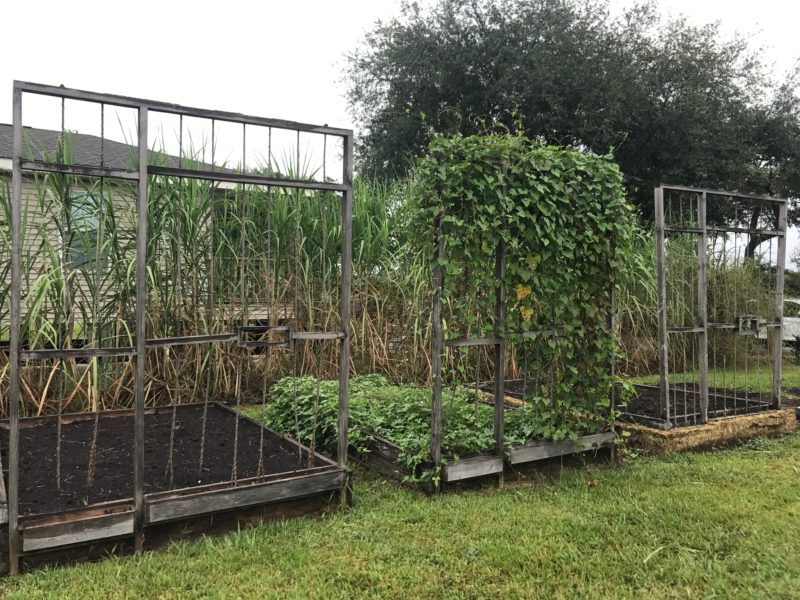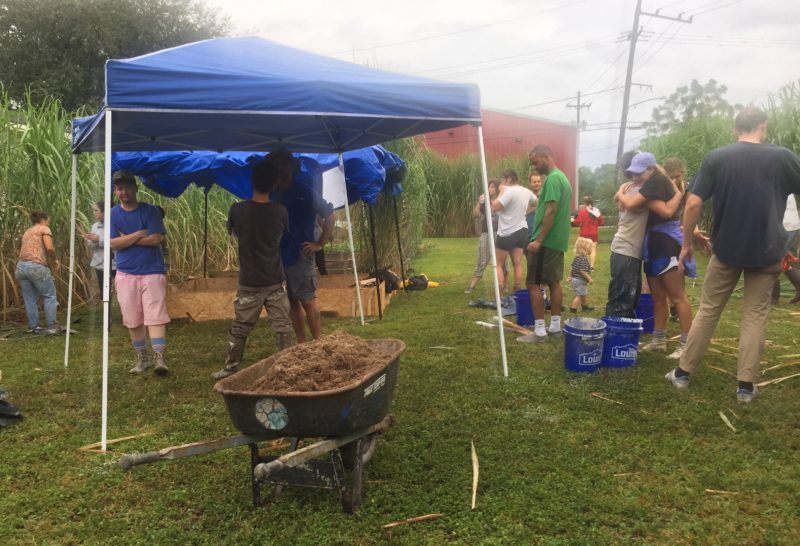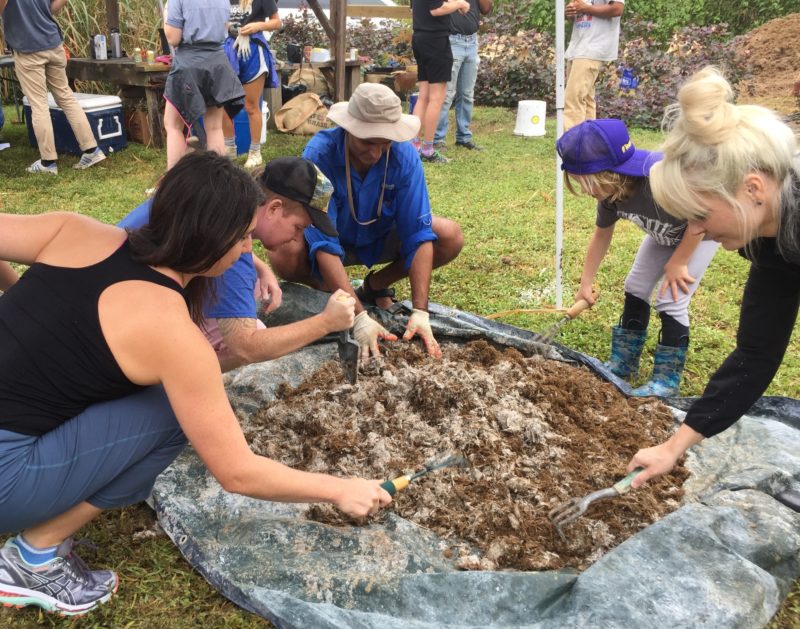Solitary Gardens is an organization in New Orleans that advocates for the abolition of solitary confinement. Solitary Gardens works with current and former prisoners in solitary confinement, as well as other social justice advocates, to design and create 6 by 9 foot garden beds. The structure of each garden is meant to replicate the approximate size of solitary confinement cells across the United States. Soon, twenty-five of these garden beds will be dispersed to different locations nationwide.
This mere explanation does not do justice to the visionary organization and its passionate creator. Solitary Gardens is much more than what initially meets the eye, and to understand Solitary Gardens we met with the artist behind the project. jackie sumell’s journey towards Solitary Gardens began in April of 2001. At this point in time, neither mass incarceration nor solitary confinement were being discussed as prominent issues on the national agenda. Nevertheless, sumell entered the vast and formidable world of mass incarceration by simply writing to Herman Wallace and Albert Woodfox, prisoners in solitary confinement well known as two of the Angola Three. A seed was planted.

“Can you imagine a landscape without prisons?”
Calm but disquieted, sumell explains that her dear friend, Herman Wallace, spent forty-one years in solitary confinement. sumell corresponded with Wallace throughout the twelve years leading up to his release, developing a trusting relationship bound by a shared cause. This relationship altered the course of sumell’s life. Of the many things Wallace taught her, sumell recalls that he wrote about liberation and the meaning of freedom, maintaining that compassion and the practice of love were the means to achieving both. With a modest smile, sumell describes this message as an “unexpected gift to be given from an oppressed man.”
Even more profoundly, the Angola Three gave sumell a new purpose for her life. To her, this invaluable sense of purpose in service would involve interpreting experiences of oppression and the legacy of the Angola Three into art. Over time, something beautiful sprouted through the soil, Solitary Gardens.
sumell and Wallace together conceived of and developed a project to build Wallace’s dream home. Tragically, Wallace passed away soon after his release, though the initial project remains in progress and Solitary Gardens has emerged as an additional tribute to his legacy.

Volunteers at Solitary Gardens.
Solitary Gardens ingeniously advocates for the abolition of solitary confinement with art as its tool and social justice warriors as its tenders. Not confined to Louisiana, the twenty-five prisoners collaborating with the organization are dispersed across the nation. Earnestly, sumell informed us that she is collaborating with one prisoner from The United States Penitentiary, Administrative Maximum Facility, Colorado’s supermax prison informally called ADX and often regarded as one of our nation’s most inhumane (perhaps difficult to imagine, reportedly 80% of the prison is underground). Solitary Gardens also seeks to engage with and involve many people outside of solitary confinement. Visitors that check out the garden beds should be sure to pick up a seed packet; recipients can plant certain seeds that relate to one of Solitary Gardens’ sentiments.

Five volunteers breaking up the soil for a garden bed.
The development and progress of Solitary Gardens has taken sumell longer than she expected—it does take sugar cane up to a year and a half to grow—so it is not too late for others to get involved. Anyone can always visit the site at 2600 Andry Street in New Orleans, where the Solitary Garden family has established a warm and welcoming community. To volunteer on site, host a garden bed, or inquire about connection a prisoner in confinement to Solitary Gardens, email grow@solitarygardens.org. sumell and the two authors of this article can attest to the empowering experience of volunteering with Solitary Gardens, and encourage anyone and everyone interested to get involved.
 New Orleans Startups
A brief overview of the growing New Orleans startup scene. This piece highlights the main industries of New Orleans, competing cities, and just how emerging the current entrepreneurial/startup scene is in New Orleans.
New Orleans Startups
A brief overview of the growing New Orleans startup scene. This piece highlights the main industries of New Orleans, competing cities, and just how emerging the current entrepreneurial/startup scene is in New Orleans.
 A Bin in Every Classroom: Why Tulane Should Lead on Composting
I asked a peer, Isabel, for her thoughts on composting: “Why do...
Tulane
A Bin in Every Classroom: Why Tulane Should Lead on Composting
I asked a peer, Isabel, for her thoughts on composting: “Why do...
Tulane
[…] you would like to hear more about jackie’s work here’s a previous story Also, her newest solitary garden can be found at the Art Center at Xavier University, and you […]